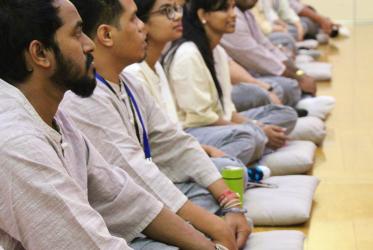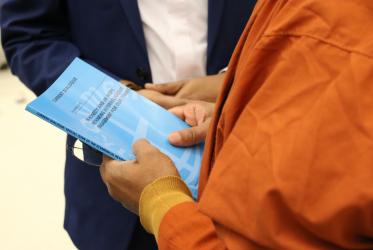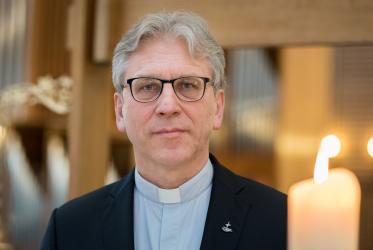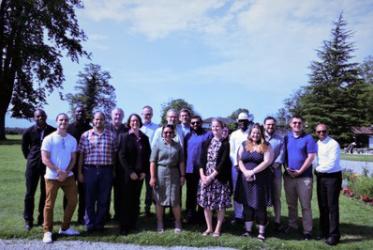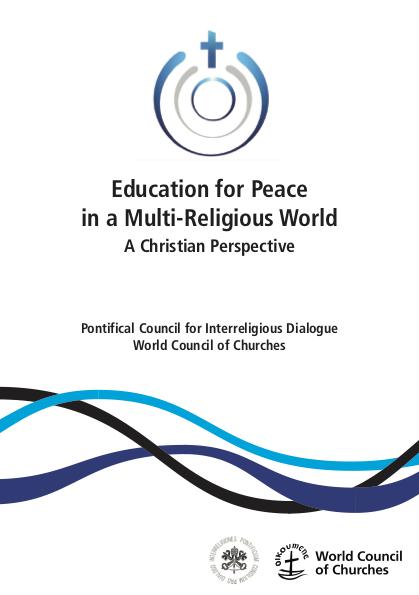Displaying 41 - 60 of 162
Festivities and dialogue launch new WCC journal
07 February 2020
WCC condemns attack at Hanukkah celebration in New York City
29 December 2019
WCC mourns passing of Prof. Vuyani Vellem
09 December 2019
In Korea, young ‘stewards of hope’ forge ahead together
19 September 2019
Ecumenical young trailblazers
15 August 2019
Bossey gathers students for interreligious dialogue
02 July 2019
Latest issue of Current Dialogue tackles diverse themes
28 March 2019
Peace is common denominator of all major religions
05 March 2019
